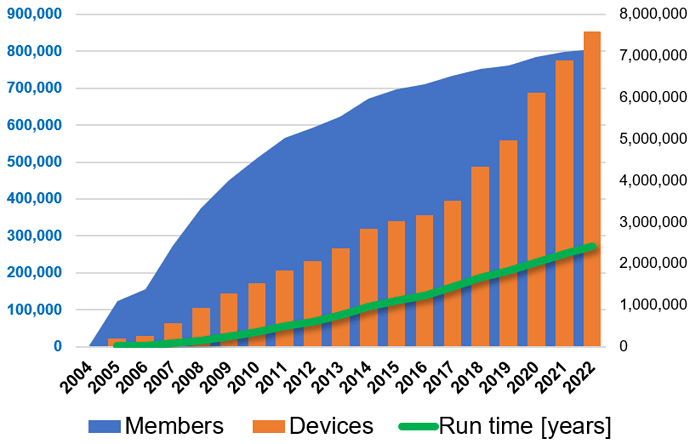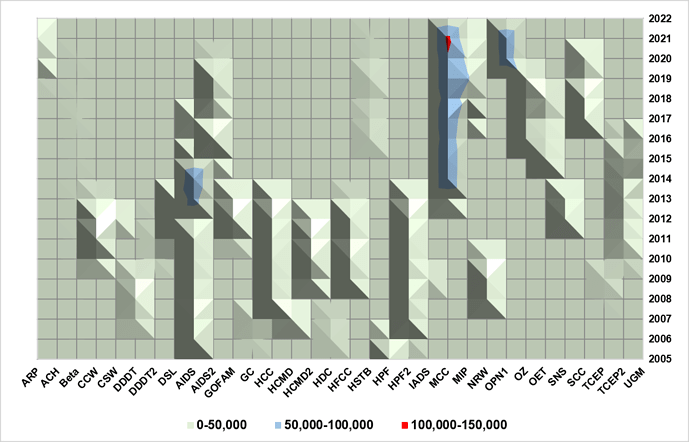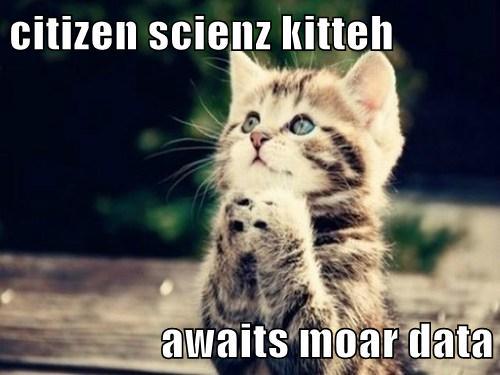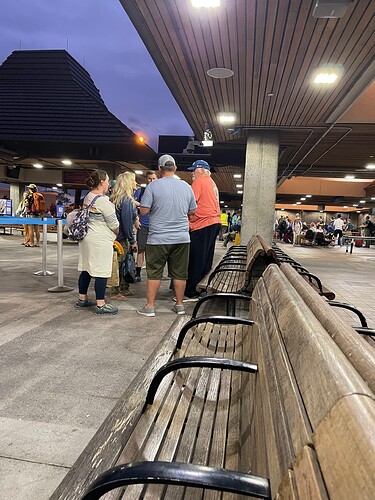Here’s the monthly update on World Community Grid points:
Statistics last updated: 2/27/22 23:59:59 (UTC) [many, many hour(s) ago]
Member Name Points Monthly
Generated Change
mbplatt 168,367,034 3,298,146
KlaymenAO 154,677,988 1,694,902
1695814 75,265,959 815,869
Wannabe Actuary 58,484,865 303,044
Macroman 57,932,531 195,007
Actuarialsuck 29,975,909 127,126
yoyo_58 27,712,081 546,840
Breadmaker 9,796,607 196,573
meepbobeep 9,290,453 119,988
SpaceLobster 3,667,477 1,424,015
celalta 695,450 13,910
GoA_Kenny 177,471 89,849
Available WCG Projects
#NULL!
Here’s the monthly update on Folding@Home points:
Monthly
Name Credit Change
1695814 14,981,556 1,033,100
Rick_G 9,987,863 32,550
Breadmaker 2,831,022 138,232
macroman 1,831,218 30,649
Celalta 474,246 474,246
GoA_Kenny 391,147 189,654
Welcome to our newest member, Celalta!!!  (
( )^(1/2)
)^(1/2)
Typical Folding@Home Projects
COVID-19
Alzheimer’s
Cancer
Huntington’s
Parkinson’s
For a comprehensive list see https://apps.foldingathome.org/psummary
If you’d like to join us in finding a cure for COVID-19, Cancer, Ebola, AIDS, and other stuff, see the OP ( <-- clicky clicky! ) for links to get the downloads







